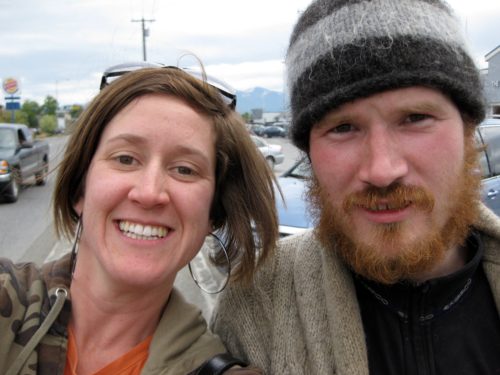The Power of Connection

By Marin Sardy, Author of The Edge of Every Day: Sketches of Schizophrenia
With the holidays approaching, I find myself thinking a lot about mental health in the context of families and relationships. In my memoir, The Edge of Every Day: Sketches of Schizophrenia, I wrote about my experiences with the schizoaffective disorder that my mother lives with, and which my brother, Tom, lived with as well, through several years of homelessness until his death in 2013. I wanted these stories of our life as a family to serve as a call to action for others—to fight stigma, to push for better funding of mental health services, and to illustrate why such services are necessary. But just as much, I wanted people to understand that we do ourselves a great disservice when we treat mental health as just a solitary, individual concern.
 In writing my book, I made a point of expressing and demonstrating the love and respect I have felt for my family members with schizophrenia, and to show them as individuals with intelligence and agency, not reduced to a diagnosis. I hoped to encourage others to approach people they know who live with similar diagnoses in the same way. After all, my love for my mother and brother, my desire to be close to them, and my respect for their humor and grit shouldn’t be radical ideas. But so often in our culture, people with such challenges are simply written off, ignored or condemned.
In writing my book, I made a point of expressing and demonstrating the love and respect I have felt for my family members with schizophrenia, and to show them as individuals with intelligence and agency, not reduced to a diagnosis. I hoped to encourage others to approach people they know who live with similar diagnoses in the same way. After all, my love for my mother and brother, my desire to be close to them, and my respect for their humor and grit shouldn’t be radical ideas. But so often in our culture, people with such challenges are simply written off, ignored or condemned.
As a mental health activist, and later as a professional writer, I’ve been publicly sharing my story of mental illness for more than a decade. Early on, I noticed that people commonly responded by sharing that they, too, had similar experiences. I became familiar with a certain tone they often conveyed—a craving, an eagerness to talk with someone who could relate. When The Edge of Every Day was released in May, I might have guessed that readers and audiences would meet my words with a similar sense of urgency. After generations of being silenced by stigma, families like mine are no longer interested in letting other’s prejudices prevent us from sharing what we know. We have too much to gain by doing so. So often it’s in our stories that we find our strength and our hope.
Sometimes, people ask me how the mental health care system can be fixed. As a memoirist, I can’t claim to have the answer. But what I can say is that mental illness is not something that occurs in a vacuum. When one family member is struggling, an entire network of relationships is affected. And while this means that mental illness can be a source of pain among loved ones, it also indicates that human connection can be a source of great healing.
In New York this past summer, I sat on a panel with three other memoirists who have written about their own and loved ones’ mental health challenges. A young woman in the audience shared with us that she struggles with depression and asked for advice. What could she do when medication and therapy were not enough? I thought back to my brother’s years of homelessness, when he accepted treatment only sporadically. I told her about his friends from high school—guys who gave him sofas to crash on, who fed him their food and offered him their showers, who let him hang out in their living rooms while they were at work. They gave him safe places to be and human interaction on his terms—what he could handle without getting overwhelmed. And they did it because they liked him and trusted him. One year, some of them invited him to their Thanksgiving potluck. Among many who didn’t know my brother, they were modeling love, respect, and inclusion—and others picked up on it, speaking to him with interest and appreciation through the whole event, despite that he was in the grip of psychosis and unable to converse in a “normal” way.
Their friendship wasn’t enough, on its own, to enable my brother to recover from schizoaffective disorder. But I think we as a society tend to underestimate how much it can help. I told that young woman, “I think for anyone, so much of it comes down to connection.” Others on the panel then suggested concrete ways that she could enlist friends to assist her in moments of need, small measures that could make a big difference. This holiday season, let’s keep the power of connection in mind and make an effort to reach out, to listen, to share, and to spend time together. It’s good for our loved ones’ mental health, and our own.
Comments are closed here.